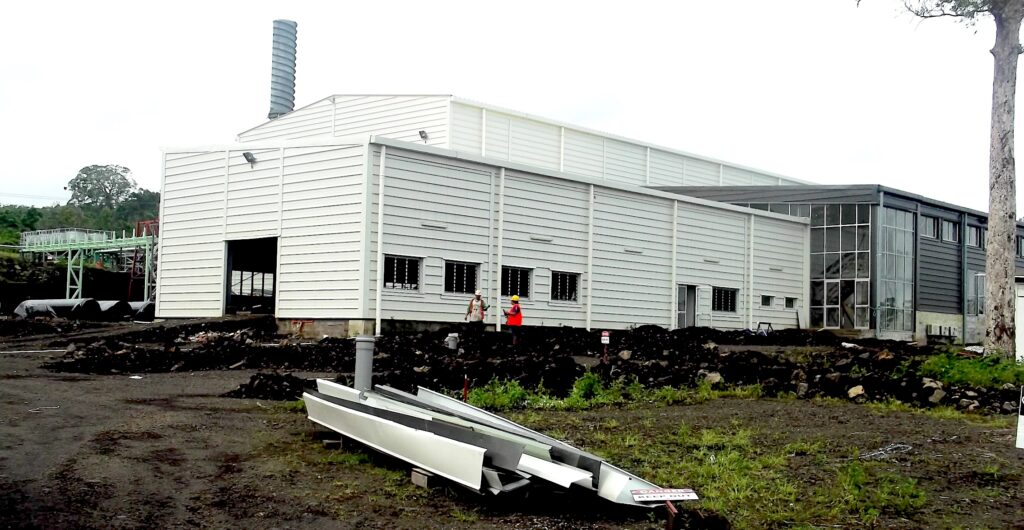
FILE PHOTO : EPC Fiaga Power House
By Staff Writer
The 30 days national state of emergency Samoa is now under as of today has been dismissed as ‘very very strange’.
The Opposition Human Rights Protection Party, Tuilaepa Sailele Malielegaoi, believes ‘electricity blackouts’ are not at the level of severity, enough to declare a state emergency.
“A state of emergency may be declared when our security or economic life of Samoa is threatened by war, external aggression, internal disturbance or natural catastrophe,” Tuilaepa wrote in his regular media column today.
Tuilaepa blamed the blackouts on the ‘lack of maintenance, misuse of resources and more.
He noted also that it all “started during the Commonwealth Heads of Government Meeting last year.”
The opposition leader warned the Government not to “cry wolf “ or it may lead to a ‘loss of confidence’ in the International community support when Samoa needed it most.

The Head of State, His Highness Tuimaleali’ifano Va’aleto’a Sualauvi II, officially declared the National State of Emergency on the advice of Cabinet.
Prime Minister Fiame Naomi Mataafa announced the official proclamation earlier in the day effective 12.00am Monday 31 March – Tuesday 29 April 2025.
The PM described the Government action as “measures necessary to manage and restore national energy supply, protect public health and safety, and maintain essential services.”
As a result of continuous power outages and electricity rationing, the Government acknowledges the significant impact on our people and economy, noting that:
1. The damage to household utilities and the safety of residential buildings has been extensive.
2. The loss of power has compromised the storage of perishable food items in retail and wholesale outlets, posing significant public health risks.
- The impact on private businesses and corporations affecting operations and livelihoods.
- The projected economic cost of the crisis is estimated to reach approximately 16% of GDP for the 2025 calendar year, underscoring severe disruptions to national productivity, public services, and economic activity.
The Electric Power Corporation (EPC) has been working tirelessly to monitor the situation, identify solutions, and minimize, as best as possible, the impact on essential services and the daily lives of our people. Multiple factors have contributed to the current energy crisis, namely:
- Mechanical failures at the Fiaga Power Station resulted in the loss of primary generators that supply a substantial portion of Upolu’s electricity;
- A faulty underground transmission line disrupted power distribution across key parts of the national grid;
- Severe weather events, most notably the destructive storm of9 March 2025, caused widespread damage to energy infrastructure and further hindered restoration efforts; and
- Rising electricity demand has placed additional strain on EPC’s generation capacity, particularly during peak consumption hours.
The Government is pleased to provide an update on the priority actions implemented to date in response to the ongoing energy crisis:

1. Temporary power generation units are scheduled to arrive on 5 April to provide immediate relief and supplement electricity supply. Full power restoration across Upolu is expected before the end of April, while awaiting the arrival and commissioning of permanent generators in August 2025.
- Overhaul parts for the Fiaga generators are currently being procured to
restore them to full operational capacity. - The Government remains committed to accelerating renewable energy and
grid reinforcement projects to strengthen and diversify the national energy supply.
The Proclamation of Emergency will enable the Government to implement urgent measures to stabilize the energy supply and mitigate the impacts of the crisis by:
- Ensuring the timely arrival and operation of temporary generators before the end of April, ahead of the permanent units scheduled for August, along with the necessary overhaul parts for Fiaga;
- Lifting tax and import duties on generators and other electricity-related equipment, including renewable energy systems, procured by EPC, households, businesses, and organizations for electricity generation;
- Mobilizing additional assistance and resources to support households, businesses, and private organizations adversely affected by the crisis;
- Securing additional and targeted financial and technical support to assist EPC in implementing medium to long-term remedial works; and
- Activating a whole-of-government coordinated response through the National Emergency Operations Centre (NEOC) to coordinate the Government’s response to the energy crisis.
The Government acknowledges the significant hardship this energy crisis has placed on households, businesses, and essential services across the island of Upolu. We want to reassure everyone that restoring a stable electricity supply and supporting those most affected remain our top priorities. Every effort is being made to respond swiftly, minimize further disruptions, and provide relief where it is needed most.
With unity, resilience, and collective action, we will overcome this challenge and move toward a more secure, sustainable, and affordable energy future for all of our people.
Faafetai and God Bless Samoa.